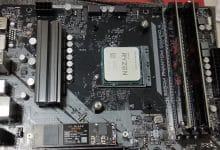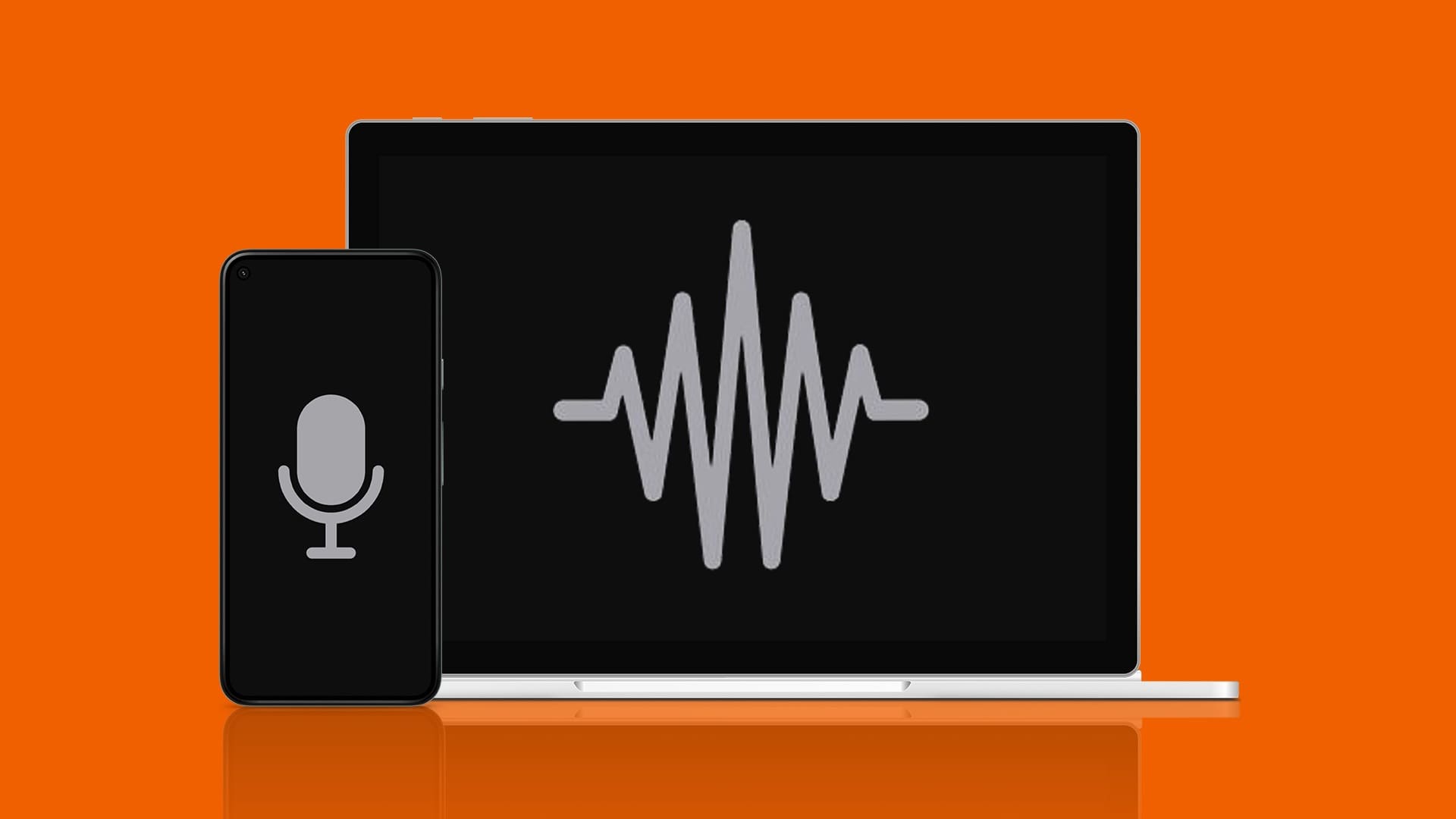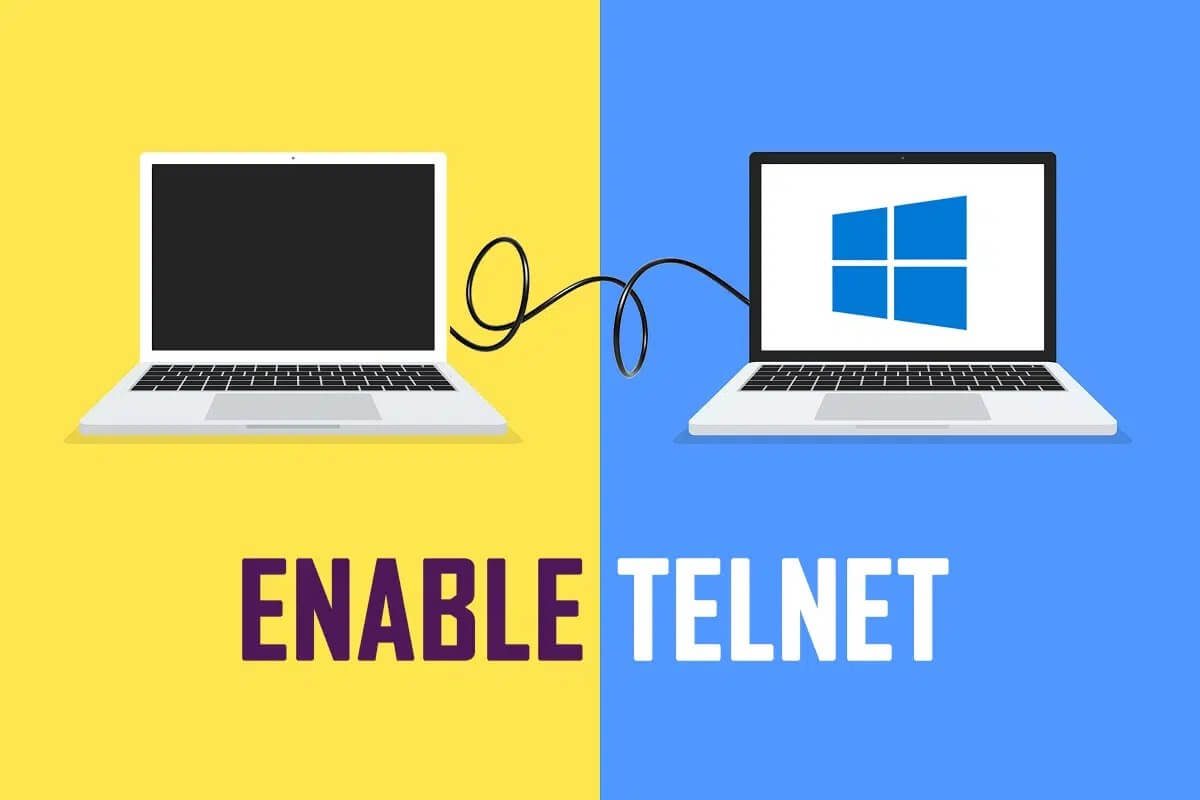Having the correct brightness level for your computer is an essential element of your computer, especially when playing games, watching movies, and working. Your computer's brightness is responsible for Adjust computer lighting Depending on the environmental brightness. However, a few users reported a common issue, where Windows 10 brightness It doesn't work after upgrading or updating your PC. Other users have reported that the brightness control is always set to the maximum level even after adjusting it. If you can't change the brightness in Windows 10, your PC's performance may be affected because high brightness will reduce battery life. However, several troubleshooting methods work to fix Windows 10 brightness not working. Read and follow this guide to fix the issue.
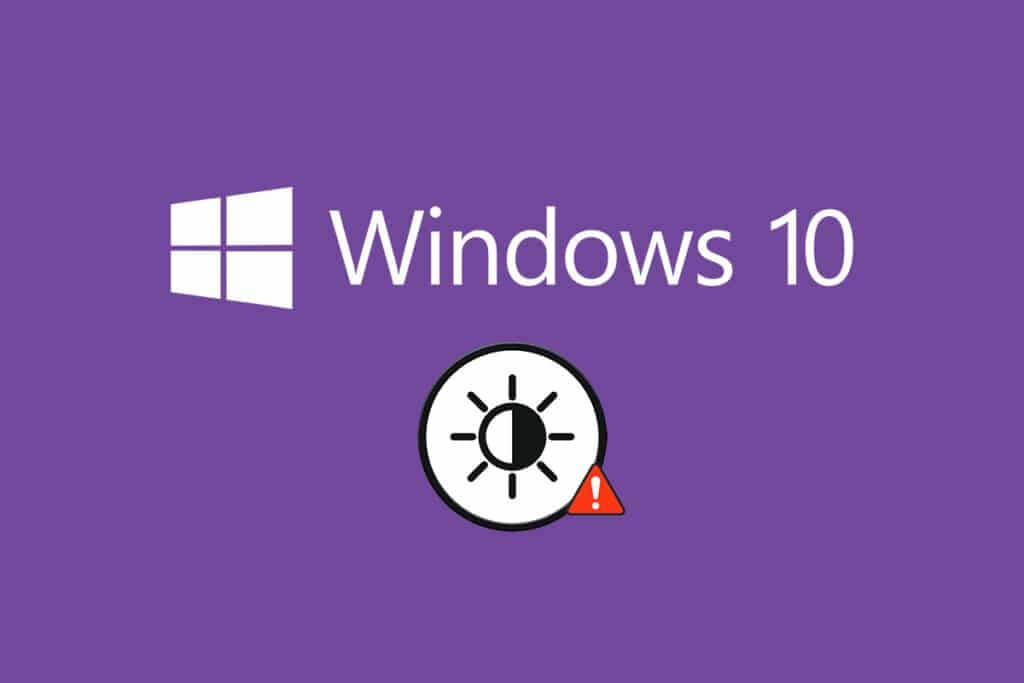
How to Fix Windows 10 Brightness Not Working
If you can't change the brightness on your Windows 10 PC, laptop, or monitor, there could be several reasons. These can be either software-related or hardware-related, and it's important to identify the root cause before fixing it. In most cases, you can fix the problem yourself; in some cases, you'll need to seek professional help for repair or replacement. Therefore, it's worth analyzing the root cause of the problem before taking any further action.
- If there is a problem with your display when the computer has been subjected to physical damage, aging factors, etc., you may have a problem adjusting the brightness control.
- If your software is outdated or your graphics drivers aren't updated, you can't change the brightness in Windows 10. Update your device and drivers to fix the issue.
- If you use keyboard commands to control brightness, keyboard issues may be causing Windows 10 brightness not to work.
In this section, we've compiled a list of ways to fix the Windows 10 brightness issue. The methods are arranged according to the severity of the issue and the effectiveness of the troubleshooting techniques. Follow them in that order for best results.
Method 1: Run Windows Troubleshooter
Running the power troubleshooter will resolve any glitch on your computer, and this method is applicable not only for Windows 10 but also for Windows 7 and 8.
1. Press Windows + R keys At the same time to open Run dialog box.
2. Write ms-settings: troubleshoot And press Enter key.
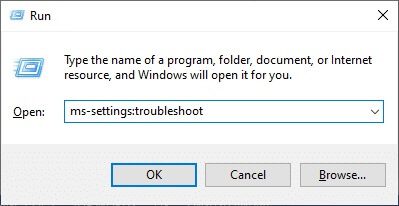
Note: For Windows versions prior to OS 10, type control.exe /name Microsoft. Troubleshooting instead of ms-settings:troubleshooting and press Enter.
3. Click Additional troubleshooting tools.
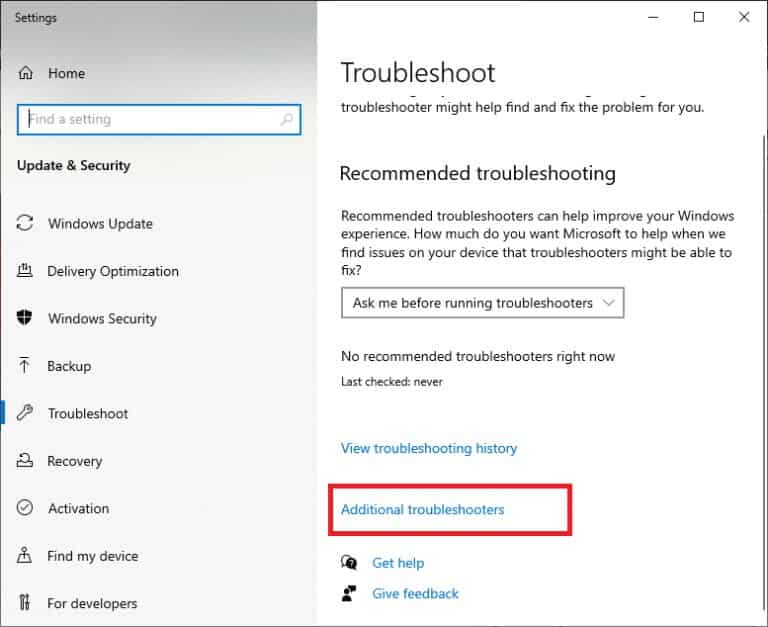
4. Select energy Run the troubleshooter.
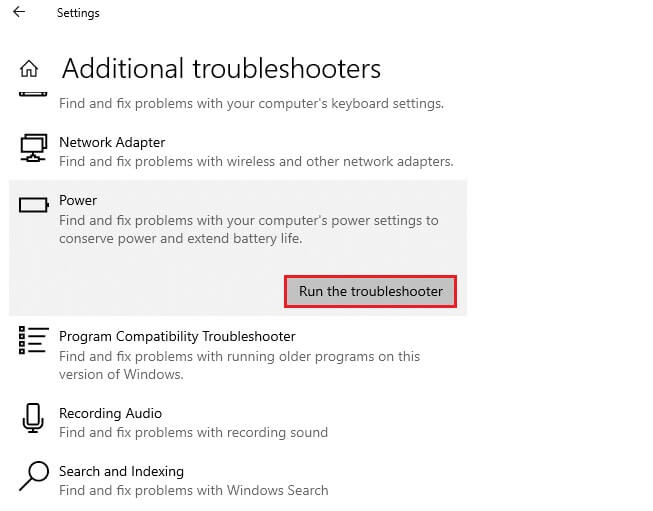
5. Wait for the process to complete, and if any issue is found in your system, click Apply this fix Follow the instructions in the successive prompts.
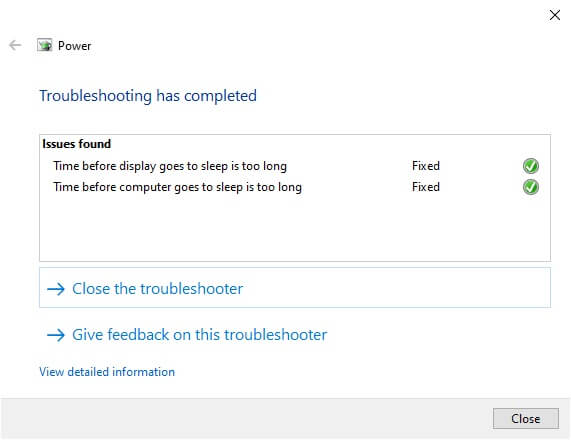
6. Finally, Restart your computer.
Note: If you do not get any fix through this troubleshooting method, follow the additional troubleshooting steps.
1. Press Windows + R keys Together to start Run dialog box.
2. Write msdt.exe -id DeviceDiagnostic And press Enter key.
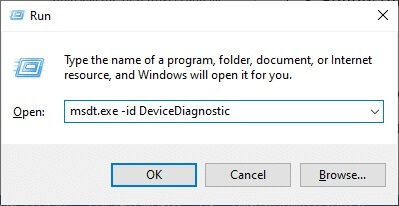
2. Click next one.
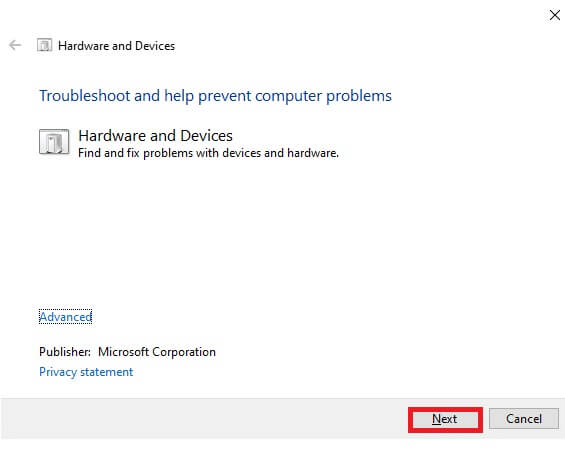
3. Sometimes, if your device isn't set up with the latest drivers, you'll receive the following prompt. You can finish installing drivers and updates if you want to. Follow the instructions that appear on the screen, then Restart your device.
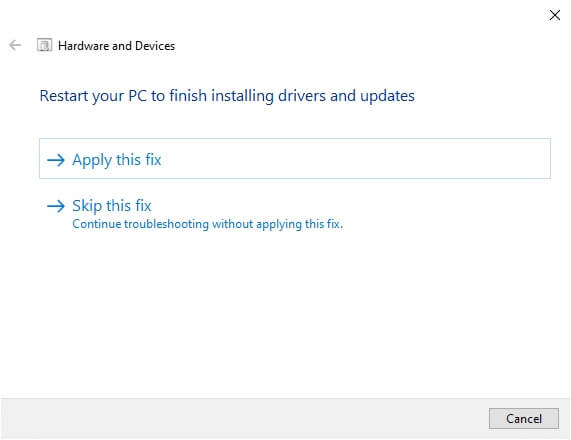
Troubleshooting often fixes the Windows 10 brightness not working issue.
4 a. This process allows you to see if it can identify and resolve the issue.
4b. However, the following screen will appear if you cannot identify the problem.

Method 2: Update or reinstall your display adapter drivers
Follow these steps to update or reinstall your display adapter drivers.
Option 1: Update your display adapter drivers
Try updating your drivers to the latest version to fix Windows 10 brightness not working. You can also uninstall your graphics card driver and reinstall it instead of updating the driver using the steps below. In either case, the net result will be the same.
1. Write Device Manager In the list Windows 10 Search.
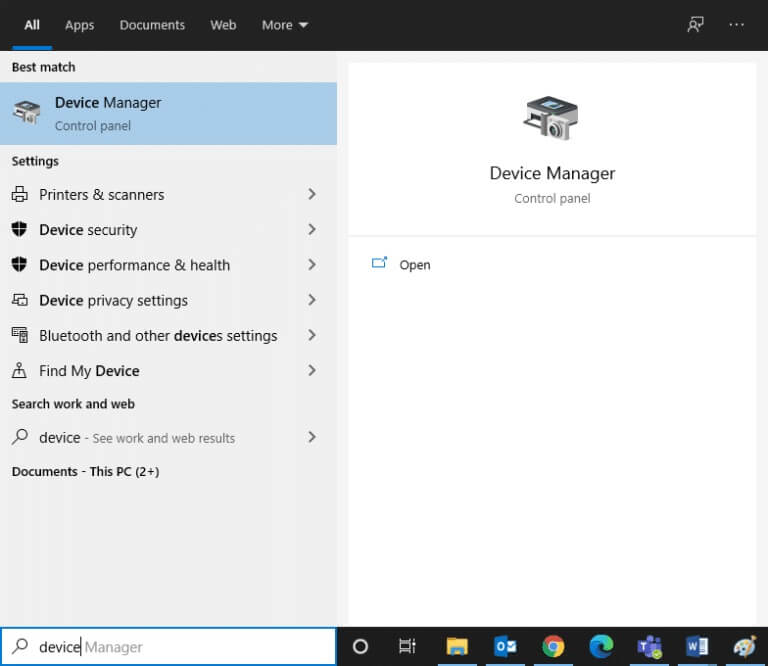
2. Double-click on Display adapters to expand it.
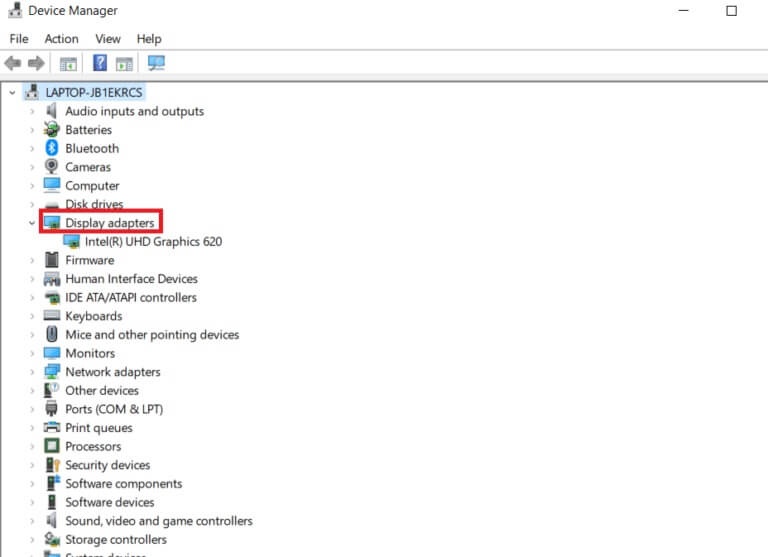
3. Right click on Video card driver (e.g. Intel(R) HD Graphics 620) And click Driver Update.
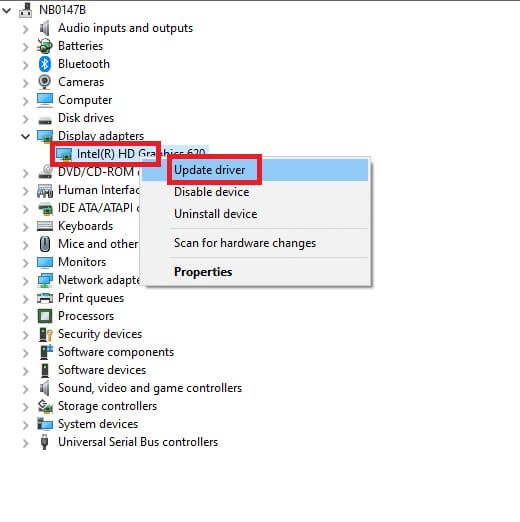
4. Click Computer Review My own to get Drivers To locate and install the driver manually.
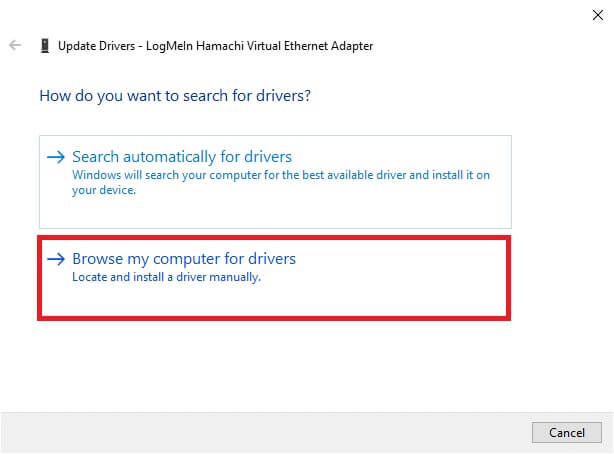
5. Click Browse button.. To select any directory, click next one.
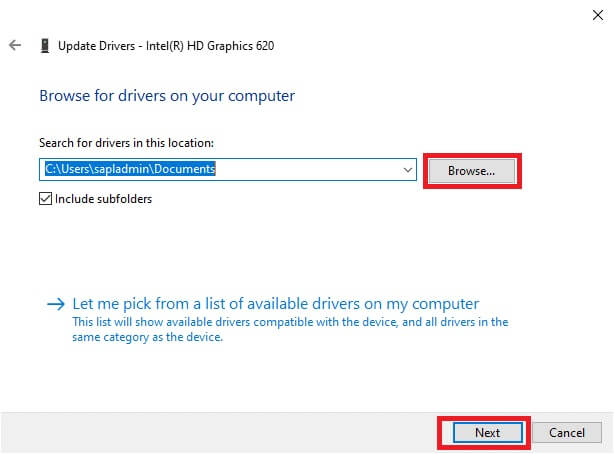
6. Finally, click the button. "Close" To get out of the window.
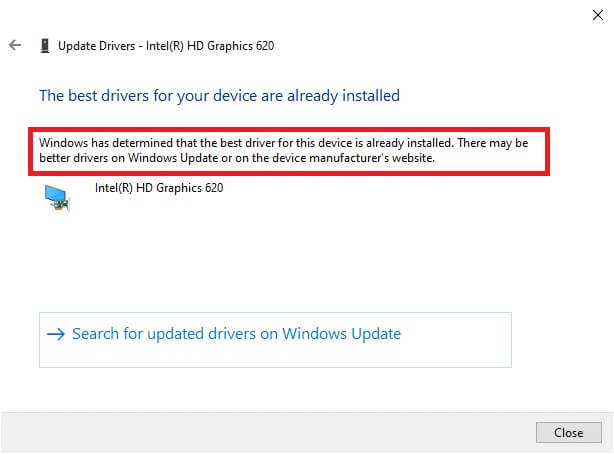
7. Restart your computer , and check if Windows 10 constant brightness is not working in your system.
Option 2: Reinstall your display adapter drivers
If updating your drivers doesn't fix the issue, you can uninstall and reinstall your display adapter drivers. Follow the steps below to do so.
1. Turn on Device Manager using Steps mentioned in Method 2A Expand display adapters by double-clicking on them.
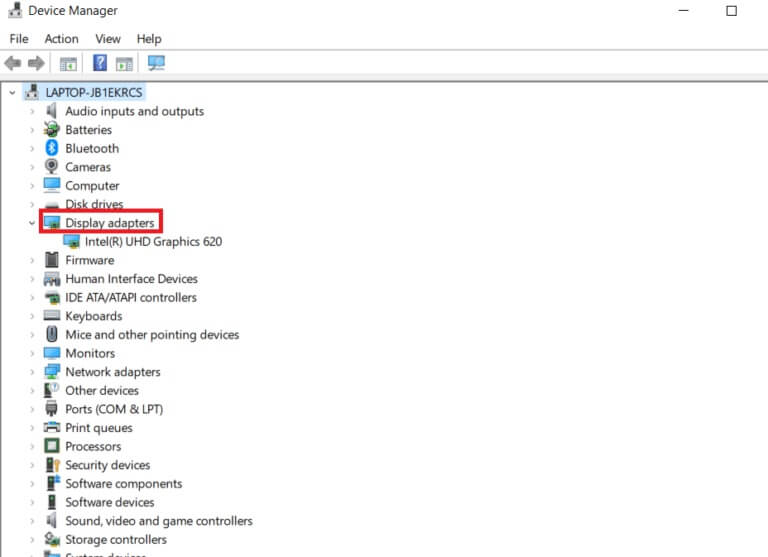
2. Right click on Operating system and select Uninstall device.
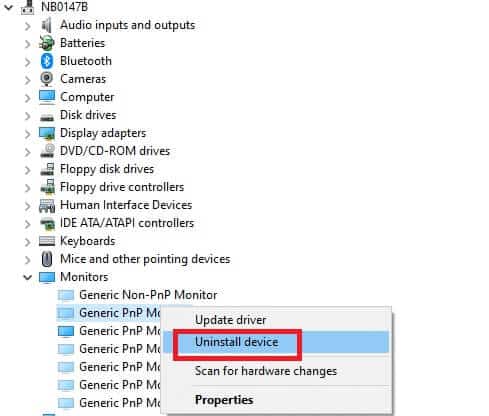
3. A warning message will be displayed on the screen. Check the box. “Delete the driver for this device” Confirm the claim by clicking on uninstall.
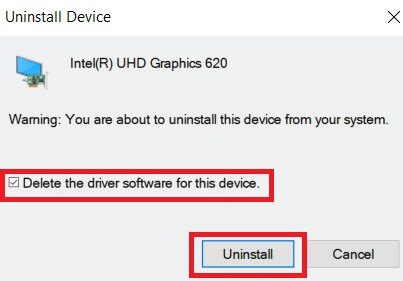
4. Download and install the drivers on your device either by Manual update Or auto update.
5. Visit Manufacturer's website.

6. Search for Drivers matching your Windows version Download it to your computer.
7. Once downloaded, double-click on File Downloaded and follow the instructions provided to install it.
8. Follow the same steps for all device drivers like audio, video, network, etc.
Check if you have fixed the Windows 10 brightness not working issue on your system.
Method 3: Use the Microsoft Basic Display Adapter
If the display adapter driver is unavailable or not installed on your computer, you can use a built-in Windows driver. This driver can fix the Windows 10 brightness issue. Here are some steps to help you use the Microsoft Basic Display Adapter on your computer.
1. Open device Manager As shown in Method 2A And click Driver Update Bottom of the display adapter.
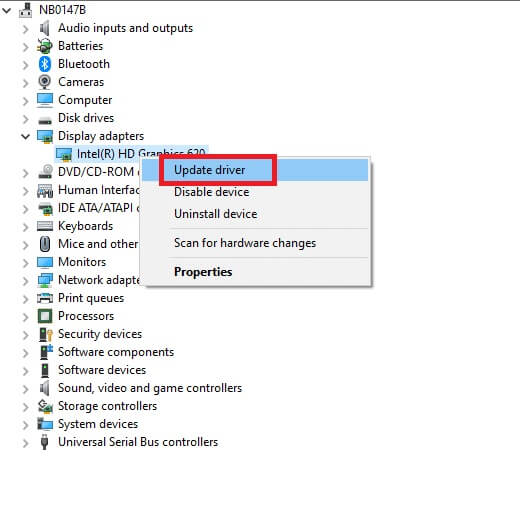
2. Click Computer Review My own to get Drivers To locate and install the driver manually.
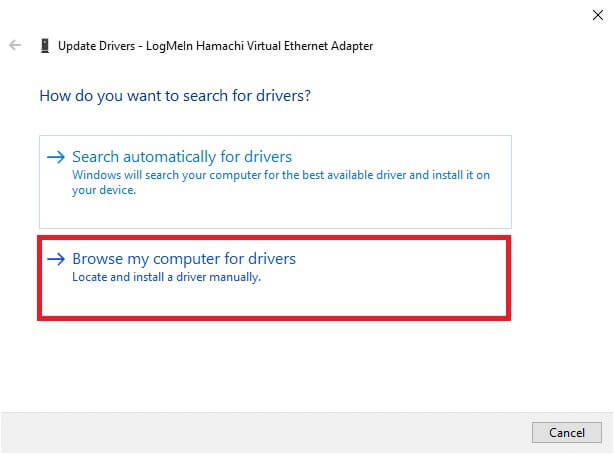
3. Click Let me pick from a list of available drivers on my computer.
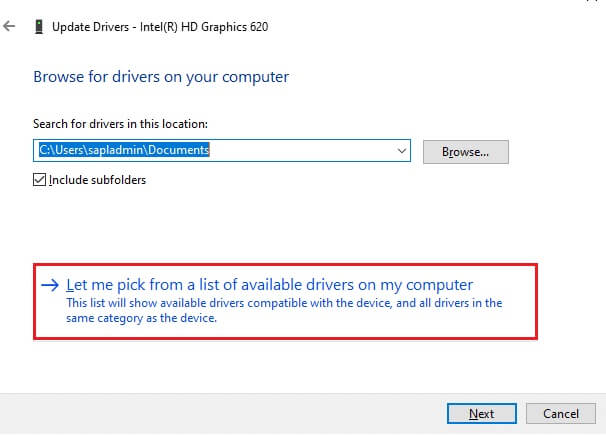
4. Check the box, Show compatible devices. Click Microsoft Basic Display Adapter And click next one.
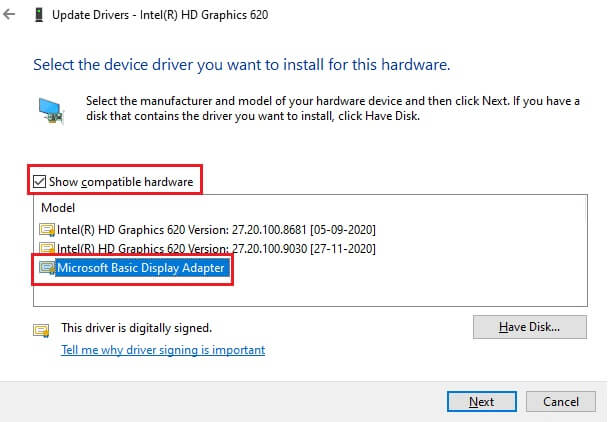
5. A claim will be displayed, Windows Successfully update your drivers.
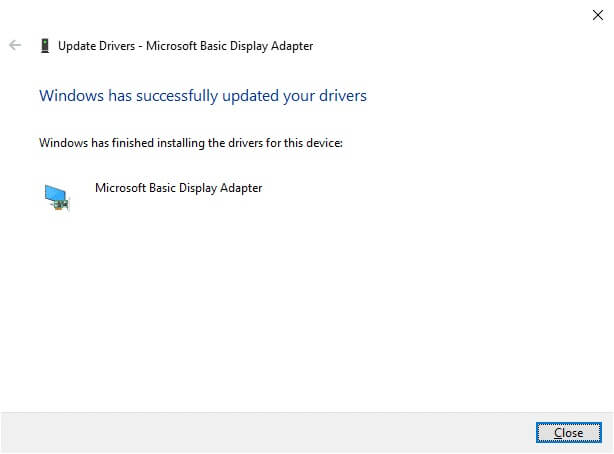
6. Finally, Restart your computer Check if you have fixed the problem.
Method 4: Modify power option settings
If you can't change the brightness in Windows 10, you can fix it by disabling the Turn off screen after power-up option, as shown below.
Note: You can also type edit power plan in the search bar to open the Edit Plan Settings window (skip steps 1 and 2).
1. Press Windows key + R And type powercfg.cpl And press Enter key.

2. Select an option Change plan settings.
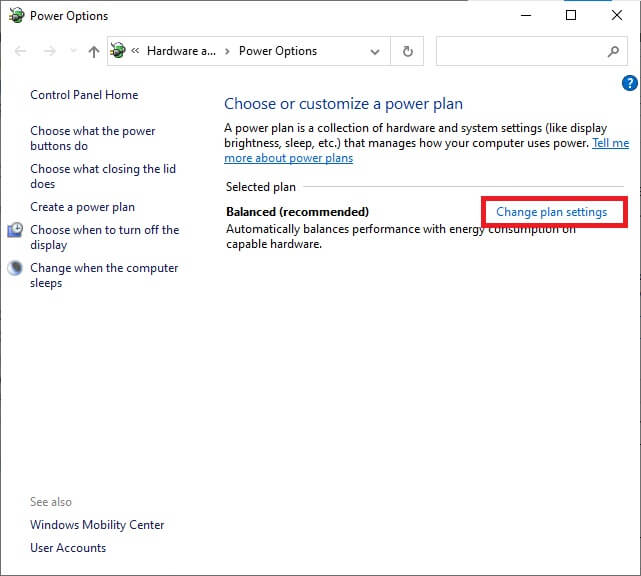
Note: If you have multiple power plans active in your system, repeat the same procedure for all multiple active plans.
3. Click Change advanced power settings.
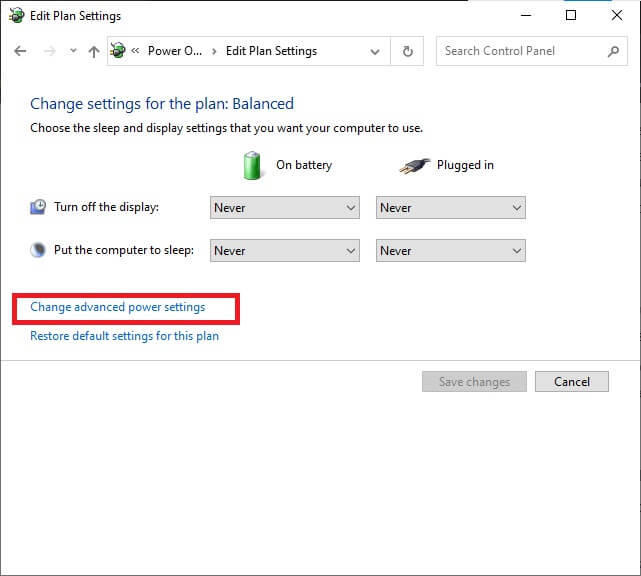
4. Here, in the list Advanced Settings Expand the view option by clicking on + Icon.
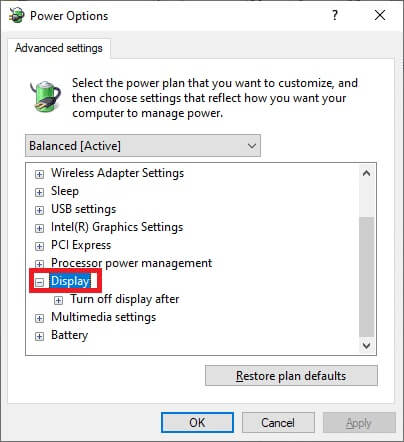
5. Expand the option Stop the show After clicking on The symbol +.
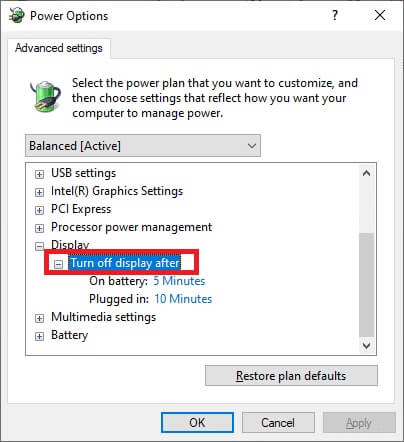
6. Click on the battery and change the setting to Start from the dropdown menu.
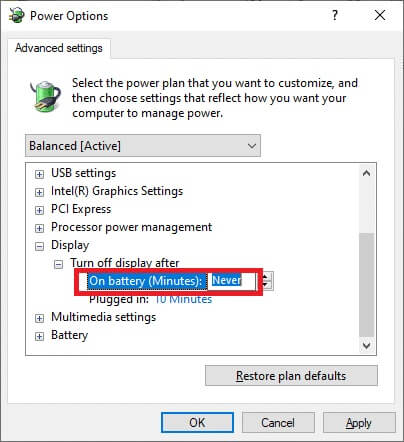
7. Click Connected and change the setting to Start.
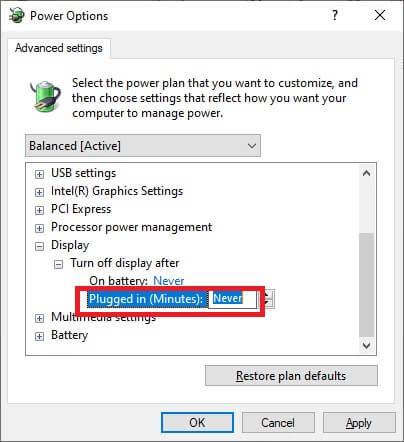
8. Click "Application" و "OK" to save the changes.
9. Restart the system your and check if the issue is resolved now.
Note: If you find the Adaptive Brightness option under Display, follow the same procedure and set the On battery and Plugged values to OFF.
Method 5: Re-enable Plug and Play Display (for PnP displays)
If you're using a Plug and Play (PnP) display and can't change the brightness in Windows 10, this method is for you. Any updates or the driver itself can disrupt it, causing the Windows 10 brightness to not work. It's a good idea to make sure PnP is disabled on your device.
Option 1: Enable PnP displays
1. Turn on device Manager As shown in Method 2A and go to Screens Department.
2. Double-click on Screens to expand it.
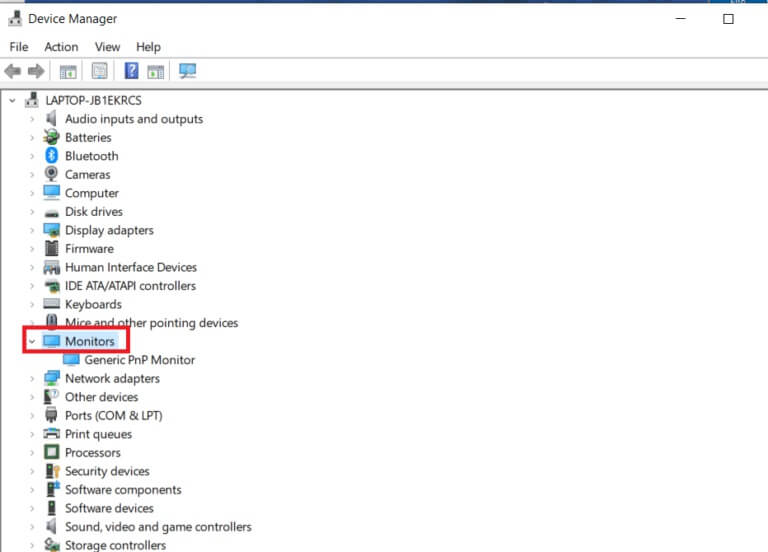
3. Right click on Generic PnP Monitor and select Enable device.
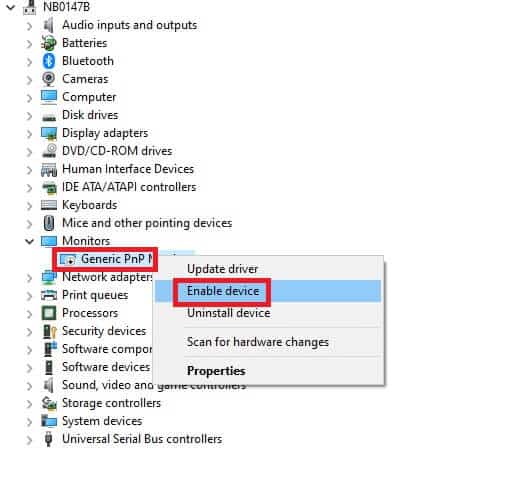
Note: If you don't see the Enable Device option, your computer doesn't have PnP enabled. In this case, you can skip directly to the next method.
4. Finally, Restart your computer Check if you have fixed the problem.
Option 2: Uninstall hidden devices under PnP displays.
1. Open Device Manager As shown in Method 2A and go to View tab To determine Show hidden devices.
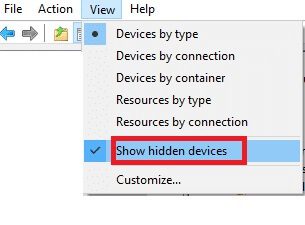
6. Expand Display Devices Department A list of hidden screens will be displayed.
Note: Hidden screens will appear translucent from the real screens.
7. Right click on All transparent screens and select an option Uninstall the deviceRepeat this step until you delete all hidden PnP displays.

Method 6: Modify Registry Editor settings
If you're an ATI user and have Catalyst installed on your device, you can't change the brightness in Windows 10 due to a bug in Catalyst version 15.7.1. To resolve the issue, follow the steps below.
1. Open Run . dialog by pressing Windows key + R together.
2. Write regedit and press Enter key.

3. Go to the next track in Registry editor.
HKEY_LOCAL_MACHINE\SYSTEM\ControlSet001\Control\Class\{4d36e968-e325-11ce-bfc1-08002be10318}\0000
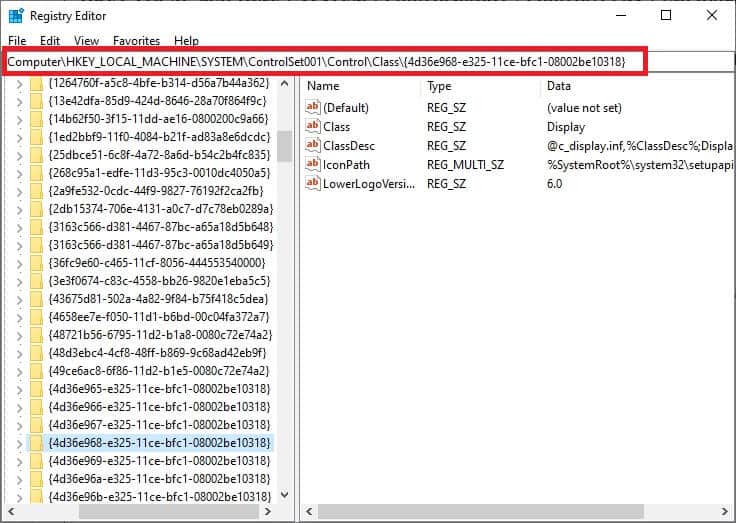
3. Double-click the following keys (if present) and set their value to: 0 Then click “OK”:
- MD_EnableBrightnesslf2
- KMD_EnableBrightnessInterface2
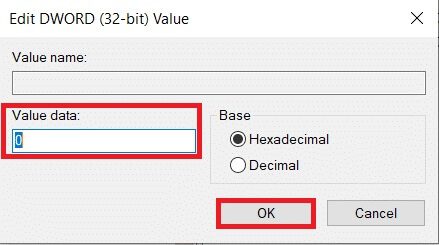
4. Again, go to the path. Next main volume:
HKEY_LOCAL_MACHINE\SYSTEM\CurrentControlSet\Control\Class\{4d36e968-e325-11ce-bfc1-08002be10318}\0001
5. Double-click the following keys (if present) and set their value to: 0 Then click “OK”:
- MD_EnableBrightnesslf2
- KMD_EnableBrightnessInterface2
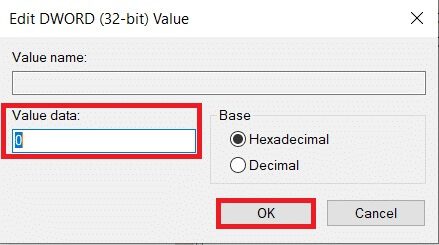
We hope this guide was helpful and you were able to fix Windows 10 brightness not working. Let us know which method works best for you. Also, if you have any questions or suggestions regarding this article, feel free to leave them in the comments section.


